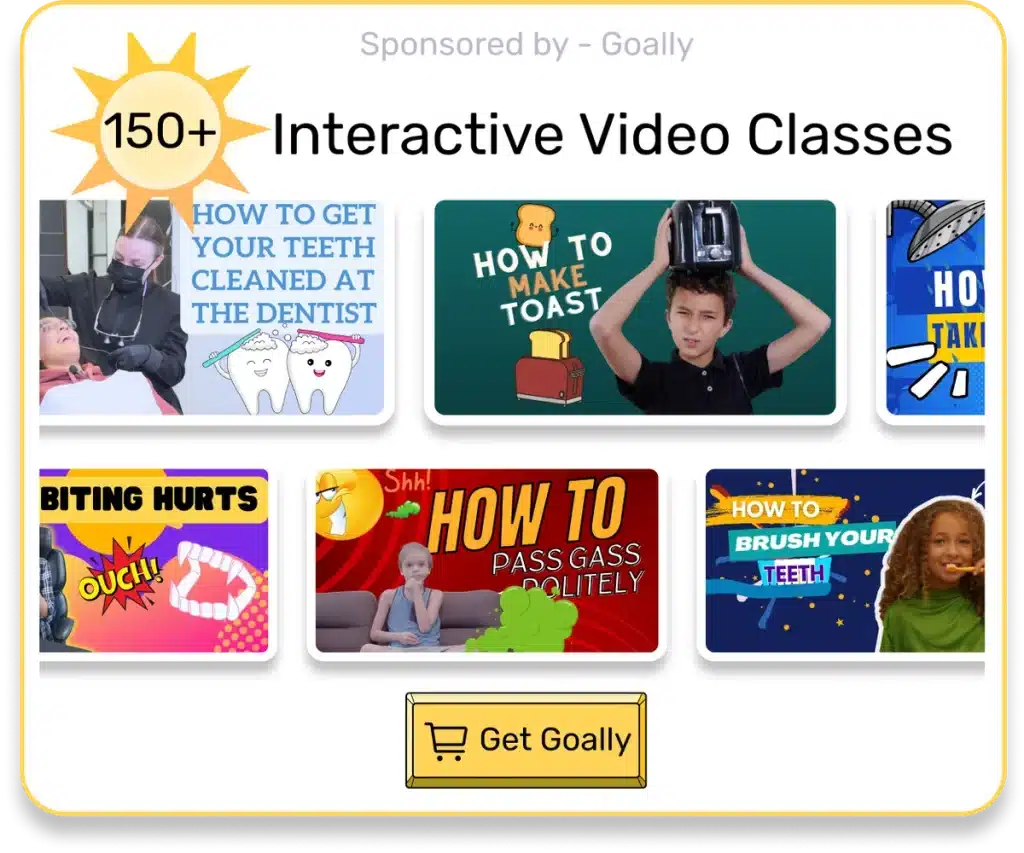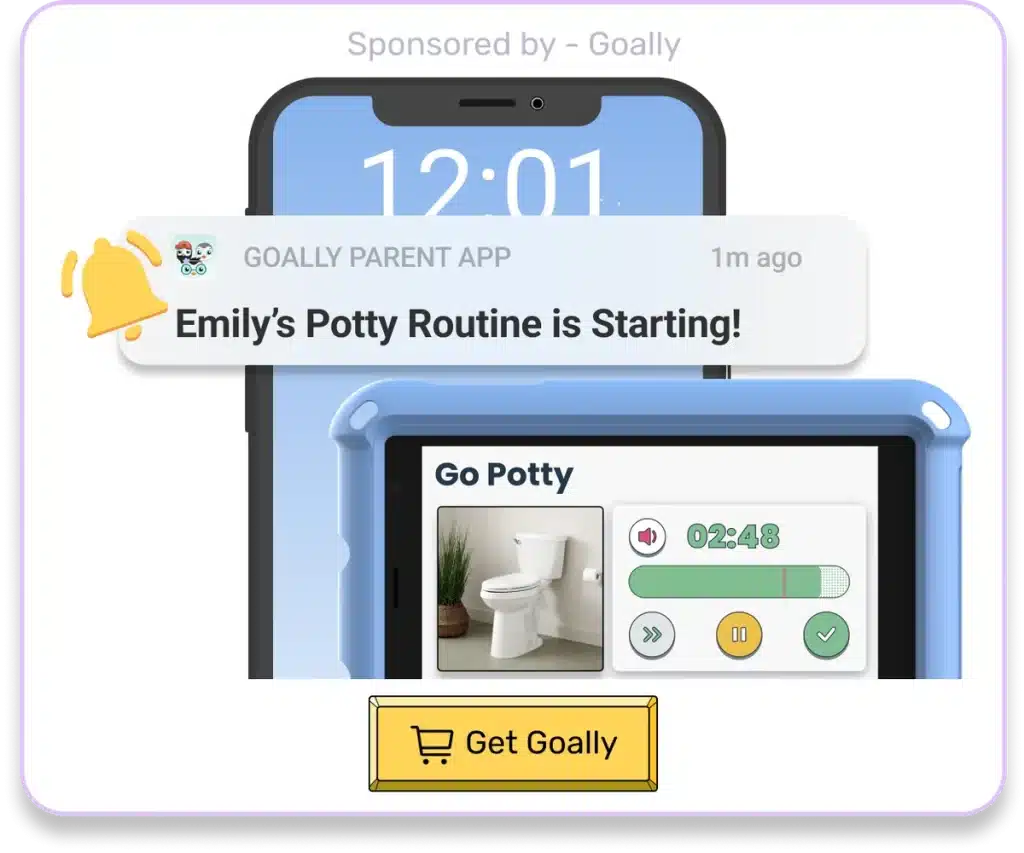Ever noticed your child so engrossed in their favorite game that they’re like a superhero with laser focus? Working with kids, I’ve seen firsthand the challenges they face in tackling homework and chores, especially for those who are neurodivergent. I’ve gathered some incredible strategies that can transform these everyday tasks into moments of growth and success. By the end of this, you’ll have practical tips to boost your child’s concentration powers and make those uphill battles feel more manageable.
Table of Contents
Step 1: Create the Perfect Focus Zone
To set the stage to help kids focus, create a special area in your home just for focusing on tasks. This “focus zone” should be clean, well-lit, and free from distractions.
- Choose a quiet corner away from noisy areas
- Add comfy seats and essential supplies like pencils or Goally’s learning tablet
- Keep the space organized by having designated spots for items
A dedicated focus zone will make it easier for your child to settle down and work on tasks without distractions sidetracking them.
Step 2: Break Tasks into Smaller Parts
If your child is struggling with a large task, you might be wondering how to help them focus. One effective strategy is to break the task down into smaller, manageable parts. Children, particularly those with learning and thinking differences, might find large tasks overwhelming. By dividing the task into smaller sections, it becomes more achievable and less intimidating.

Say, your little scholar has a book report due next week. Instead of letting them get overwhelmed, guide them through smaller steps: reading one chapter each day, jotting down notes after each chapter, and creating a draft outline before diving into the full report. This approach not only makes the task manageable but also bolsters their confidence with every small victory. Remember, knowing the right “ways to help kids focus” can turn an arduous climb into a pleasant hike! Now, who wouldn’t want that for their child?
Step 3: Build Routines They Can Count On
Consistent routines make it simpler for kids to know what they should do next and stay focused on their tasks. Set up daily schedules that include time slots allocated specifically for homework, chores, playtime, and relaxation.

Goally | Best Videos to Teach Life Skills
Give your kid an independent future. Goally has 100+ video classes teaching life skills like “How to Choose a Restaurant,” “How to Interrupt Politely,” and “How to Get Ready for School.”
Goally takes kids on an adventure that includes interactive practice and checkpoints along the way! No web browsers, YouTube, or social media.
Having structure in their day-to-day lives allows children to develop a sense of responsibility and independence. They’ll be more likely to stay on task when they know what’s expected of them.
Build Custom Printable Visual Schedules
Is your child having trouble managing their routines? Here’s a free visual schedule builder. Goally’s custom tool allows you to create printable personalized schedules that motivate your child to focus on their tasks. Perfect for morning, homework, and bedtime routines, this free visual schedule builder is easy to use and will help your child reach their full potential.
Click below to make your CUSTOM printable visual schedule! 👇
Step 4: Let Them Take Quick Movement Breaks
Sitting still all day is tough – especially for neurodivergent children! Allowing short breaks where they can move around helps them refocus when it’s time to get back on task.
Some ideas for movement breaks include:
- Jumping jacks
- Stretching exercises
- A quick walk outside
These activities can help recharge their energy levels and improve overall concentration.
Step 5: Use Checklists & Timers To Keep Track Of Time And Tasks
Visual tools like checklists or charts are great to help kids focus while working through tasks step by step. Plus, using timers, such as the one in Goally’s app, helps them see how much time they have left to finish their work and teaches good time management skills.
With clear visuals and a sense of urgency from the timer, your child will be more motivated to stay focused on completing each task within the allotted timeframe.
Step 6: Cheer Them On with Praise & Rewards
A little encouragement goes a long way! Let your child know you’re proud of their hard work by praising or rewarding them when they complete tasks that require focus. This will motivate them to keep doing well.
Consider setting up a reward system like:
- Sticker charts
- Extra playtime after finishing chores
- Small treats after completing homework assignments
Positive reinforcement helps build self-esteem and encourages continued progress in developing focus skills.
Step 7: Show Them How To Be Mindful
Simple mindfulness tricks like deep breathing can help improve focus by making kids feel relaxed and aware of themselves. Use these techniques during breaks or before starting a task for better concentration.

Introduce practices such as:
- Guided imagery
- Progressive muscle relaxation
- Short meditation sessions
These techniques can help your child feel more in control of their thoughts and emotions, leading to improved focus.
Step 8: Keep An Eye On Progress And Adjust As Needed
Every child is unique, so what works for one might not be right for another. Monitor how your child does with each focus strategy and change things up if needed to find what suits them best.
Remember:
- Be patient – progress takes time
- Stay flexible – adapt strategies as needed
- Celebrate small victories along the way
By being supportive and understanding, you’ll be well on your way to helping your child unlock their full concentration potential!
Goally | Routines that Actually Work
Goally’s skill building tablet for kids has routines that break down large tasks into small, achievable steps. It helps kids complete their tasks independently!

Create custom routines with your own videos & pictures for every step. The steps come in small, bite-sized pieces to help your child learn the little fundamentals (like putting the toothpaste on their toothbrush!) to achieve bigger goals. And that’s just the beginning. See it in action:
In a nutshell, helping your child focus is all about providing the right environment, breaking tasks into manageable steps, and offering consistent support. By implementing these strategies and celebrating their achievements along the way, you’ll empower your little superhero to conquer any task with unwavering focus.
Helpful Resources
FAQ’s About How to Help Kids Focus
What are some effective ways to help kids focus? Breaking down large tasks into smaller, manageable steps and using learning tools like visual schedules and emotional regulation apps can greatly enhance kids' focus Can visual schedules improve kids' focus? Yes, visual schedules provide structure and routine, which can significantly help kids stay focused on tasks. How do emotional regulation apps help kids focus? Emotional regulation apps teach kids to manage their feelings, thereby reducing distractions and increasing their ability to concentrate. What role does reward play in enhancing kids' focus? Rewards can motivate kids to stay on task, reinforcing positive behavior and promoting improved focus. How can parents support their kids in improving focus? Parents can help by breaking down tasks, providing supportive tools like visual schedules and apps, and implementing a rewards system to encourage focus.
This post was originally published on 04/11/2023. It was updated on 08/08/2024.
Emily is a seasoned blog writer for Goally, leveraging her extensive background in child psychology and special education to provide valuable insights and resources for parents. Her commitment to understanding and addressing the unique needs of these children, combined with her expertise in educational strategies, makes her a credible and empathetic voice for families.





